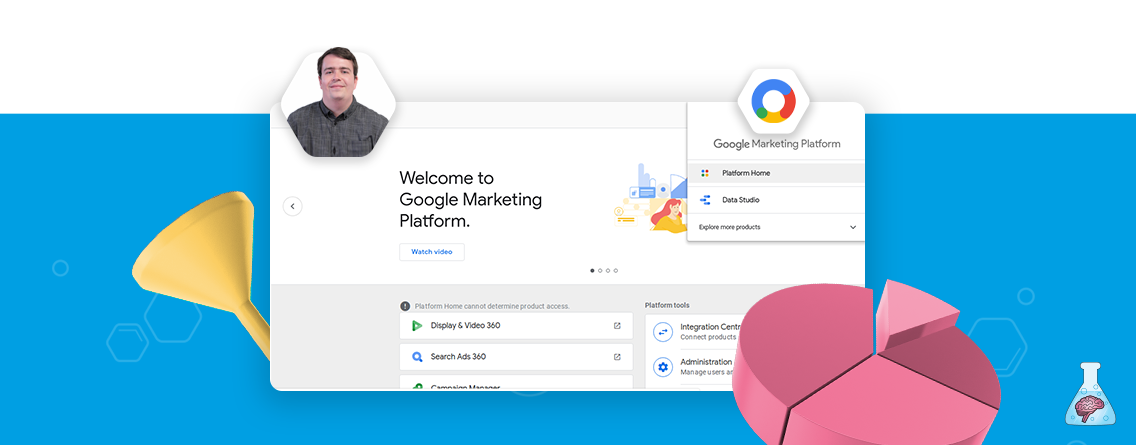No Cookies, No Problem? 3 GMP Tips to Protect Your Data Strategy
There’s no argument: effective use of data is critical to doing best-in-class marketing. With the prevailing trend towards data privacy and the impending deadline of Chrome blocking 3rd party cookies by 2023, this is a crucial year to get your data strategy sorted out.
Google Marketing Platform is by far the best avenue for enhancing and protecting your data strategy. Below, we identify three key enablers that will allow you to maximise your tracking capabilities:
Consent mode
The majority of websites in the UK and EU are now losing anywhere between 10-50% of their analytics data through using a consent mechanism that gives customers the ability to opt out of tracking. This has not only impacted reporting, but consequently impacted the efficacy of automated bidding strategies and reduced the size of remarketing audiences.
Google Consent Mode aims to combat this. Essentially, Google platforms now include a level of conversion modelling that predicts the number of lost conversions and includes these in reports and bid strategies. Consent Mode records the number of users who have opted out of tracking by sharing anonymous, cookieless data with Google. This enhances the capabilities of the conversion models to ultimately increase the effectiveness of bidding strategies and provides more accurate reporting.

Enhanced Conversions
Even for users who do consent to tracking, they may still not be tracked effectively through third party cookies (these cookies are now deleted on major browsers such as Safari and Firefox and will be removed from Chrome in 2023). These cookies are used to attribute conversions across multiple ad interactions and enable targeting of these customers across the web.
Google’s solution to this problem is to leverage its vast network of known users in the Google ecosystem (for example if you have a Google account to access Gmail, YouTube, Chrome or Maps) to measure customer behaviour across the web in a first party context and continue to enable targeting of these users for Search and Programmatic advertising. Using Enhanced Conversions, you can securely share an encrypted form of your converting customers’ personal data (email address and phone number). This allows Google to match this conversion data with known Google accounts and attribute a percentage of conversions to advertising that would otherwise not have been reported on with third party cookies alone.
Google Analytics 4
Implementing GA4 is a must. It gives you far more granular controls on the analytics data that’s being collected, which means you’ll be compliant with your businesses privacy policies. Additionally, it provides future-proof data to make sure you’re maximising the capabilities of your audience and bidding strategies. Conversion modelling (which we have already established helps fill gaps in your data caused by privacy restrictions) will not be made available in the old version of Google Analytics, so you need to be using GA4 to make the most of these benefits.
In addition to the privacy benefits, GA4 will enable you to combine your app and web data together and leverage predictive analytics to target high intent audiences across the Google Marketing Platform.




